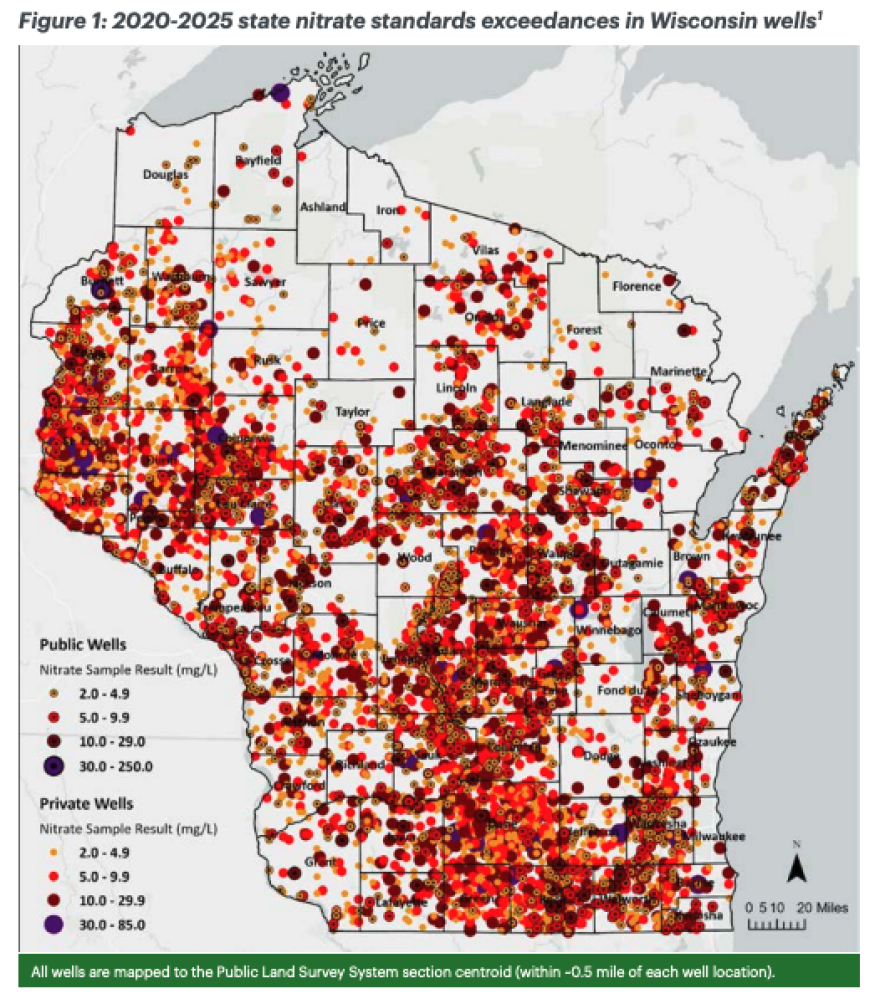Wisconsin’s drinking water is facing a growing crisis of nitrate contamination, according to a new report by the Alliance for the Great Lakes.
The report found that 90% of nitrate contamination in Wisconsin is caused by agricultural runoff from fertilizers, manure and other bio-waste. Nitrates seep into groundwater, contaminating wells in rural communities with local residents often footing the bill for cleanup.
"In the four communities we looked at, they've spent over $45 million on nitrate mitigation and that can come in the form of treatment, upgrades to the system, or even possibly well replacement," says Angela Blatt, a co-author of the report and the senior agricultural policy manager for the Alliance.
Nitrate exposure has been linked to serious health concerns, including cancer, pregnancy complications and blue baby syndrome, the report says. Nitrates also find their way into streams and rivers that flow into the Great Lakes, leading to toxic algae blooms and beach closures.
"As we see more nitrate runoff, we're seeing the toxicity of those algal blooms increase," Blatt says.

Blatt says solutions include stronger standards to minimize nitrate concentrations in the water supply, greater oversight as rural communities implement nitrate management plans and greater statewide investment in clean water.
“Without action, nitrate contamination will just continue to pollute the drinking water, endanger those communities, harm ecosystems and drive up costs for both farmers and rate-payers alike,” she says.
_






